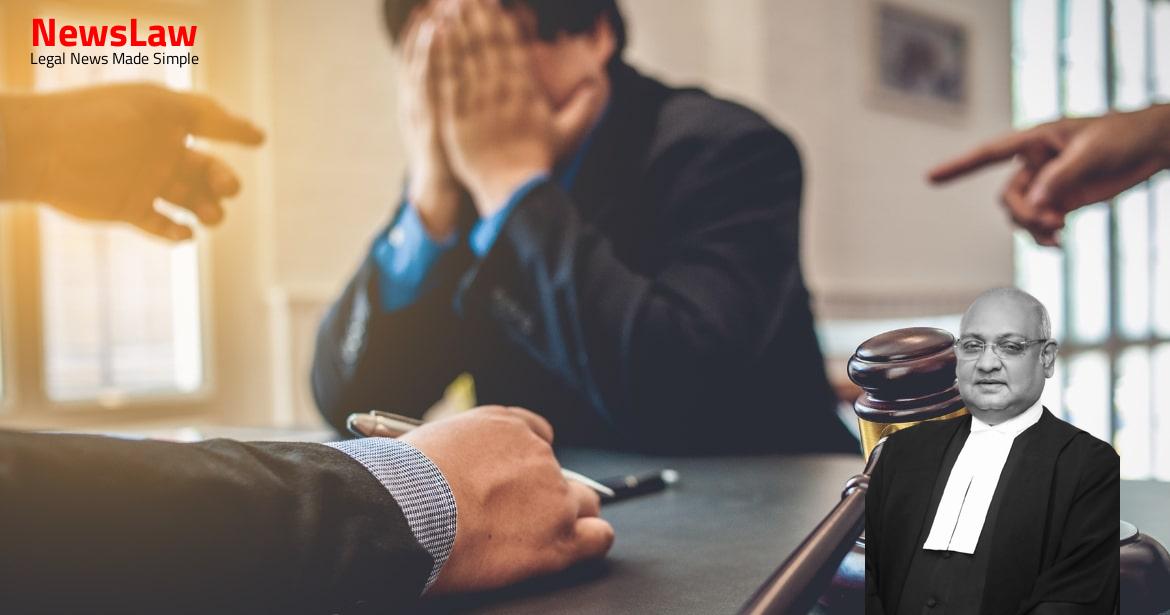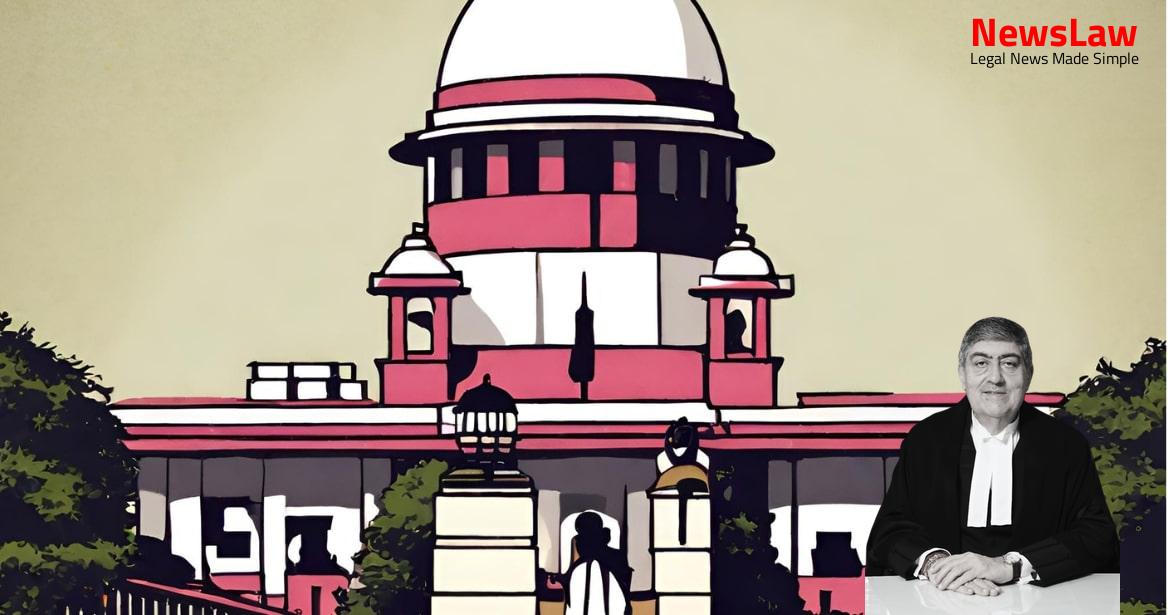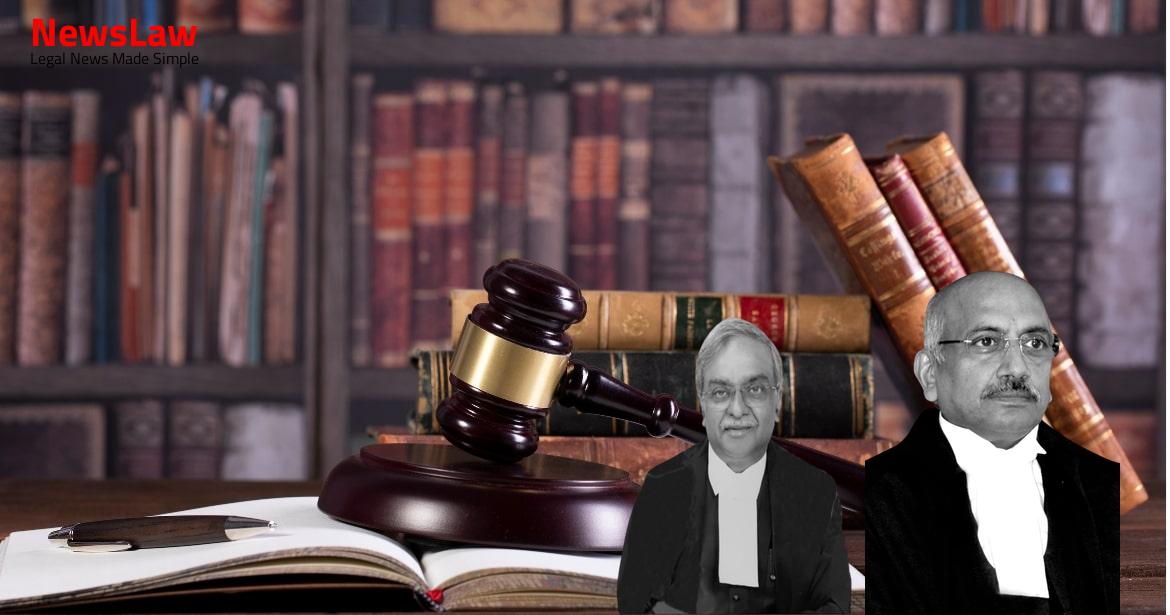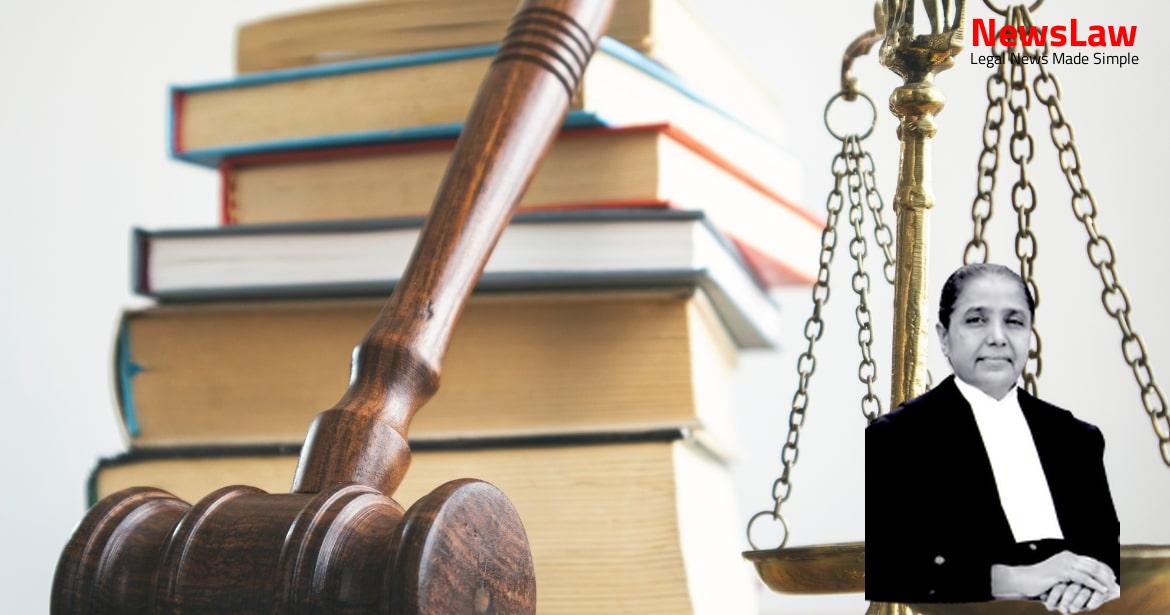Delve into the critical examination of non-disclosure issues in election petitions and the court’s careful legal analysis in permitting amendments. The case involves an in-depth review of the statutory requirements for candidate disclosures and the implications of filing false affidavits. Keep reading for a detailed exploration of the court’s decision-making process.
Facts
- The election petition filed by respondent No.1 raises two broad grounds.
- The first ground is the improper acceptance of the nomination of the appellant as the returned candidate.
- The second ground is improper receipt of invalid votes and improper rejection of valid votes.
- The second ground is not relevant for the present appeal.
Also Read: Challenging the Maintainability of Public Interest Litigations: A Court’s Legal Analysis
Arguments
- The petitioner filed an application seeking leave to amend the petition to include new grounds of challenge to the election after the expiry of the limitation period for filing an election petition.
- The petitioner’s main argument was related to the acceptance of the nomination paper filed by the 1st respondent with substantial defects in the affidavit, which should have been rejected.
- The affidavit accompanying the nomination paper of the appellant was alleged to have been improper, as it lacked the appellant’s signature in the verification part and was purchased by another person with the appellant’s name inserted later.
- The appellant’s counsel cited relevant sections of the Representation of the People Act, 1951, to argue against allowing the amendment to include allegations of corrupt practice after the limitation period.
- Case references were made to support the contention that non-disclosure of information relating to an offense could be considered a corrupt practice under the Act of 1951.
- The respondents, on the other hand, argued that non-compliance with provisions of the Constitution or the Act of 1951 could materially affect the election result, emphasizing the failure of the returned candidate to disclose information about a pending criminal case in the affidavit.
- The respondent’s argument is based on the premise that column No.5 in the nomination form only seeks information about the conviction of the candidate.
- The information required by clause 5 of the nomination form pertains to whether the candidate is an accused in any offence, not just whether they are convicted.
- The contention that the involvement of the candidate in a criminal case would not make his application liable for rejection is argued by the counsel for the respondents.
- It is noted that the returned candidate/1st respondent filed a false affidavit in Form-26 by not disclosing a pending criminal case in which he is accused of an offence punishable with imprisonment.
- The petitioner is accused of deliberately filing a false affidavit by not disclosing the criminal case pending against him, which renders the affidavit nugatory due to certain blank spaces.
- The election petition under consideration was filed after the result of the election in question was declared, with an amendment concerning grounds similar to improper acceptance of nomination being made.
- Reference is made to the decision in Sethi Roop v. Malti Thapar (Mrs.) and Others (1994) 2 SCC 579 by the learned counsel.
Also Read: Dispute over Insurance Claim for Home Loan
Analysis
- The petitioner filed a false affidavit by not disclosing a criminal case pending against him, leading to disinformation to voters.
- The suppression of facts related to the criminal case affected the election results and may lead to declaring the election void under Section 100(1)(d)(i) of the Representation of the People Act, 1951.
- The obligation of true disclosure by a candidate was not fulfilled, violating the sanctity of the affidavit.
- Voter’s right to know about the criminal antecedents of candidates is fundamental for the integrity of democracy.
- There was non-disclosure of the criminal case where the candidate was later convicted for several offenses, including charges under IPC sections 143, 147, 148, 447, 290, and 332.
- Section 33A of the Representation of the People Act, 1951, requires candidates to disclose information about any pending criminal cases where charges have been framed against them or if they have been convicted and sentenced to imprisonment.
- The High Court has the authority to allow the amendment of particulars of alleged corrupt practices in an election petition, as long as it does not introduce new corrupt practices not previously alleged.
- Amendments related to corrupt practices under Section 83(1)(b) cannot be permitted to introduce ‘material facts’ not previously pleaded.
- The procedure for trial of election petitions, as laid down in Chapter III of Part VI of the Act, includes the invalidation of an election if corrupt practices or non-compliance with election laws are proven.
- Candidates who fail to disclose required information in their nomination papers or provide false information can face penalties, including imprisonment for up to six months.
- The disclosure of criminal antecedents of a candidate at the time of filing nomination papers, especially regarding serious offences related to corruption or moral turpitude, is crucial.
- The High Court has the power to allow parties in proceedings to amend their pleadings to determine the real issues in controversy, with amendments necessary for this purpose.
- The High Court examined the contentions regarding the alleged non-disclosure of the offense of a petty nature, noting that it was neither intentional nor wanton.
- Reference was made to the case of Kisan Shankar Kathore v. Arun Dattatray Sawant, where it was highlighted that the material effect on the election due to such omissions may not arise in cases of this nature.
- The case of Sethi Roop Lal was cited to distinguish between material facts and material particulars in the context of election petitions, emphasizing the need for strict compliance with statutory election laws.
- The High Court’s decision to allow the requested amendment in the election petition was justified.
- The amendments proposed by the appellant did not pertain to corrupt practices and thus needed to be considered in light of Section 87 of the Act.
- The impugned order dated May 28, 1993, could not be sustained for the above reasons.
- The High Court’s decision to permit the amendment was in line with the existing pleadings in the case.
- The election petitioner had not previously raised
Also Read: Analysis of Evidence and Court’s Ruling
Decision
- The appeal fails
- The appeal is dismissed
Case Title: YENDAPALLI SRINIVASULU REDDY Vs. VEMIREDDY PATTABHIRAMI REDDY (2022 INSC 1120)
Case Number: C.A. No.-007951-007951 / 2022



